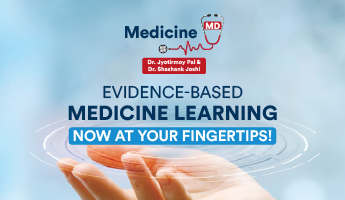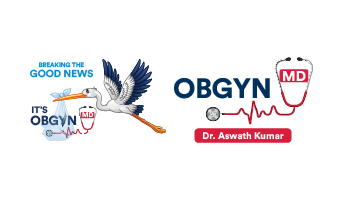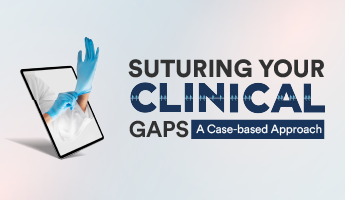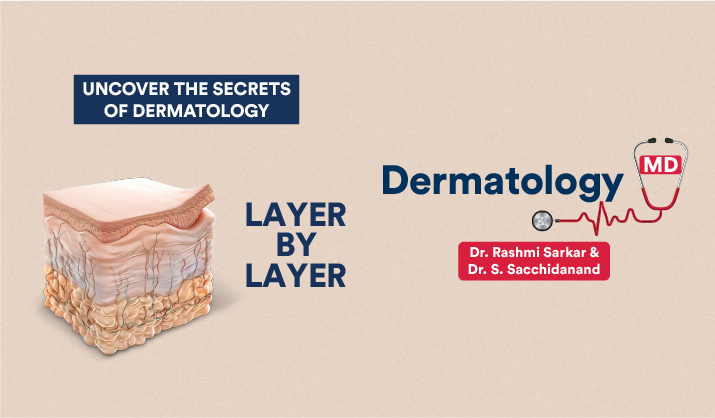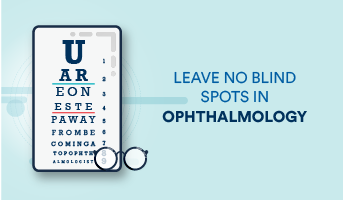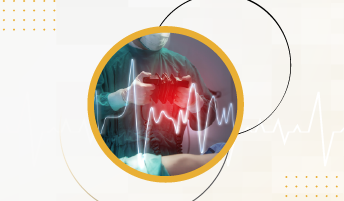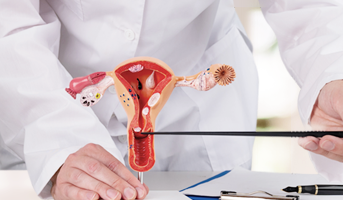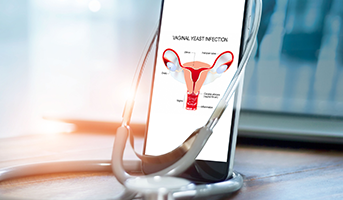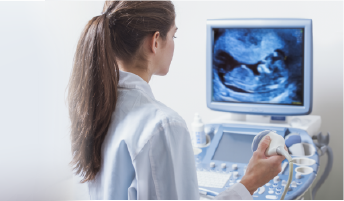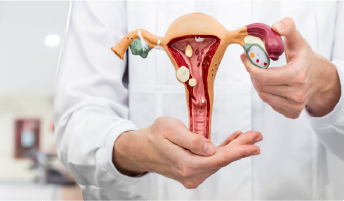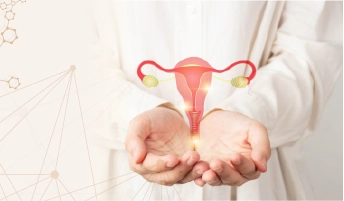Course features


Video Lecture: 110+ Hours


Benchmark Trials: 400+


Self-Assessment Questions: 1100+


Topics in Videos & Notes: 205+


DxTx: 250+


OSCEs: 200+


Surgical Tips: 450+


SxTools: 100+


Dr. Wise AI Chatbot


Printed Notes Available*
About this course
Introducing Surgery MS: Suturing your Clinical Gaps
The meticulously crafted Surgery MS is an E-learning course by DigiNerve. The course follows a case-based approach that focuses on pain areas of postgraduate students who get limited exposure to actual surgeries, leading to difficulties in understanding the clinical context. The course helps them in becoming competent in patient management, and practical application of theoretical concepts in surgical settings. It provides surgical videos aiming to address the potential impact of limited exposure to actual surgeries on students' confidence levels. The course not only aims to prepare postgrads for their MS final examinations; its mission is to ignite a passion in them to emerge as exceptional surgeons, determined in their commitment to prioritize the well-being of their patients above all else. The course has been expertly designed under the profound guidance of the esteemed Chief Editor, Prof. Dr. Nilay Mandal. He has steered the course with exemplary direction by providing quality & valuable knowledge in collaboration with 26 experts in the field.
The course includes a comprehensive coverage of basic surgical skills, trauma and various surgical super-specialities including urology, oncology, plastic and reconstructive surgery, etc. Each super-specialty is further divided into 4 modules (long cases, short cases, management decisions and surgical skills), offering a structured learning experience. Some of the unique features that set this course apart are mentioned below:
- Case-based approach: The course follows a case-based approach wherein the various lectures focus on case discussions (inclusive of both long and short cases). The case-based lectures address several concepts such as differential diagnoses, management strategies, surgical strategies, surgical pathways, complications, prevention, patient care messages, etc., all while incorporating global and Indian recommendations. Long and short case discussions in various sections are carefully curated to align with the MS examination curriculum.
- Clinical Methods: Pre and post-operative assessments covered in the videos would help postgraduate students get acquainted with clinical skills.
- Surgical Procedures: Real surgical procedures are covered in the video lectures to enable students to understand surgical skills.
- Interactive learning Experience: After each video lecture, self-assessment questions will help students to test their understanding and retention.
- OSCEs: Objective Structured Clinical Examinations (OSCEs) are vital in assessing clinical skills. These assessments are provided in flashcard formats, enabling rapid revision and self-evaluation, just like in the real exam.
- Surgical Tips: This part of the course will guide students to make appropriate decisions before and during the surgical procedures.
- DxTx: A tool for quick reference, this unique feature is represented by a human model that allows you to explore critical information with a click. You can learn about the various medical conditions and surgical procedures including clinical features, diagnosis, treatment, recent advances, and clinical trials in a crisp and structured format. Furthermore, intricate etiopathological concepts are skillfully clarified using flowcharts, whenever necessary. This tool is aligned with the NMC curriculum.
The course includes:
- Video Lectures: 110+ hours of video lecture series, encompassing basic sciences, in-depth long and short case discussions, surgical skills, and management decisions in surgery.
- Long Case Discussion Videos: Collection of 11 meticulously chosen long case discussion videos spanning important surgical super-specialties, designed to aid in comprehensive preparation for the MS examination.
- Short Case Discussion Videos: Compilation of 35 carefully curated topics of short case discussions spanning diverse surgical super-specialties, aimed at seamless preparation of MS-level examinations.
- Lecture Notes: This course includes well-illustrated 205+ topics in notes which will act as a ready reckoner for students. They are supplemented with evidence-based research studies mentioned at the end of each topic.
- Surgical Tips: 450+ tips comprising dos and don’ts before and during the surgical procedures are explained in this section. This will guide students to make appropriate decisions in their surgical practices.
- Benchmark Trials: 400+ Evidence-based studies have been added for postgrads to remain updated with recent advances in the field.
- Self-Assessment Questions: 1100+ MCQs serve both as valuable practice assessments and as a strategic integration within each video to improve comprehension.
- OSCEs: 200+ flashcards provide a standardized and objective method of assessing a candidate's clinical skills and competencies.
- DxTx: A unique tool comprising 250+ topics aligned with the NMC curriculum across various super-specialties for quick reference.
- SxTools: Instruments used in surgery are well-explained through 100+ flashcards.
- Engagement Activities: Regular chat shows, journal clubs, and recent updates are included as engagement activities.
- Dr. Wise (AI Chatbot): The chatbot clarifies theoretical as well as practical concepts with the help of AI. It is a comprehensive and interactive solution provider integrated with authentic published resources like books, journals, notes, and videos to offer apt explanations of concepts, treatment modes and more.
- Printed Notes: Concise notes are designed to save time by providing exam-focused, crisp details along with visual learning at an affordable price. The notes also comprise previous years' questions and ensure comprehensive coverage in minimum time. Existing users can purchase the printed notes @4,995 form here.
3 Days Money Back Guarantee available T&Cs apply.
Introducing Surgery MS: Suturing your Clinical Gaps
The meticulously crafted Surgery MS is an E-learning course by DigiNerve. The course follows a case-based approach that focuses on pain areas of postgraduate students who get limited exposure to actual surgeries, leading to difficulties in understanding the clinical context. The course helps them in becoming competent in patient management, and practical application of theoretical concepts in surgical settings. It provides surgical videos aiming to address the potential impact of limited exposure to actual surgeries on students' confidence levels. The course not only aims to prepare postgrads for their MS final examinations; its mission is to ignite a passion in them to emerge as exceptional surgeons, determined in their commitment to prioritize the well-being of their patients above all else. The course has been expertly designed under the profound guidance of the esteemed Chief Editor, Prof. Dr. Nilay Mandal. He has steered the course with exemplary direction by providing quality & valuable knowledge in collaboration with 26 experts in the field.
The course includes a comprehensive coverage of basic surgical skills, trauma and various surgical super-specialities including urology, oncology, plastic and reconstructive surgery, etc. Each super-specialty is further divided into 4 modules (long cases, short cases, management decisions and surgical skills), offering a structured learning experience. Some of the unique features that set this course apart are mentioned below:
- Case-based approach: The course follows a case-based approach wherein the various lectures focus on case discussions (inclusive of both long and short cases). The case-based lectures address several concepts such as differential diagnoses, management strategies, surgical strategies, surgical pathways, complications, prevention, patient care messages, etc., all while incorporating global and Indian recommendations. Long and short case discussions in various sections are carefully curated to align with the MS examination curriculum.
- Clinical Methods: Pre and post-operative assessments covered in the videos would help postgraduate students get acquainted with clinical skills.
- Surgical Procedures: Real surgical procedures are covered in the video lectures to enable students to understand surgical skills.
- Interactive learning Experience: After each video lecture, self-assessment questions will help students to test their understanding and retention.
- OSCEs: Objective Structured Clinical Examinations (OSCEs) are vital in assessing clinical skills. These assessments are provided in flashcard formats, enabling rapid revision and self-evaluation, just like in the real exam.
- Surgical Tips: This part of the course will guide students to make appropriate decisions before and during the surgical procedures.
- DxTx: A tool for quick reference, this unique feature is represented by a human model that allows you to explore critical information with a click. You can learn about the various medical conditions and surgical procedures including clinical features, diagnosis, treatment, recent advances, and clinical trials in a crisp and structured format. Furthermore, intricate etiopathological concepts are skillfully clarified using flowcharts, whenever necessary. This tool is aligned with the NMC curriculum.
The course includes:
- Video Lectures: 110+ hours of video lecture series, encompassing basic sciences, in-depth long and short case discussions, surgical skills, and management decisions in surgery.
- Long Case Discussion Videos: Collection of 11 meticulously chosen long case discussion videos spanning important surgical super-specialties, designed to aid in comprehensive preparation for the MS examination.
- Short Case Discussion Videos: Compilation of 35 carefully curated topics of short case discussions spanning diverse surgical super-specialties, aimed at seamless preparation of MS-level examinations.
- Lecture Notes: This course includes well-illustrated 205+ topics in notes which will act as a ready reckoner for students. They are supplemented with evidence-based research studies mentioned at the end of each topic.
- Surgical Tips: 450+ tips comprising dos and don’ts before and during the surgical procedures are explained in this section. This will guide students to make appropriate decisions in their surgical practices.
- Benchmark Trials: 400+ Evidence-based studies have been added for postgrads to remain updated with recent advances in the field.
- Self-Assessment Questions: 1100+ MCQs serve both as valuable practice assessments and as a strategic integration within each video to improve comprehension.
- OSCEs: 200+ flashcards provide a standardized and objective method of assessing a candidate's clinical skills and competencies.
- DxTx: A unique tool comprising 250+ topics aligned with the NMC curriculum across various super-specialties for quick reference.
- SxTools: Instruments used in surgery are well-explained through 100+ flashcards.
- Engagement Activities: Regular chat shows, journal clubs, and recent updates are included as engagement activities.
- Dr. Wise (AI Chatbot): The chatbot clarifies theoretical as well as practical concepts with the help of AI. It is a comprehensive and interactive solution provider integrated with authentic published resources like books, journals, notes, and videos to offer apt explanations of concepts, treatment modes and more.
- Printed Notes: Concise notes are designed to save time by providing exam-focused, crisp details along with visual learning at an affordable price. The notes also comprise previous years' questions and ensure comprehensive coverage in minimum time. Existing users can purchase the printed notes @4,995 form here.
3 Days Money Back Guarantee available T&Cs apply.
See Less...Content
Examination of Oral Cavity
Examination of Salivary Neoplasms
Examination of Hernia
Examination of Scrotum and Male External Genitalia
Clinical Examination of Swelling
Clinical Examination of Ulcer
Clinical Examination in Arterial Disease: Examination, Palpation of Blood Vessels, Seldinger Technique
Clinical Examination in Vascular Disease
Examination of Varicose Veins
Examination of Lymph Nodes (in Lymphatic System)
Management of Open Abdomen
Abdominal Compartment Syndrome and its Management
Intestinal Stoma
Urethral Dilation
Uroflowmetry
Urethral Catheterization
Suprapubic Catheterization
Ureteric Injury
Urethral Injury
Principles of Suturing Technique
Suturing Techniques: Part 1 (Demonstrated in Models, Foams and Bars)
Suturing Techniques: Part 2 (Live Demonstration of the Suturing Techniques)
Laparoscopic Suturing
Interpretation of TEG and ROTEM
Acute Deep Vein Thrombosis and Pulmonary Embolism
Venesection
IV Cannulation
IV Fluids in Surgery
Regional Anesthesia Digital Block
Regional Anesthesia Penile Block
Regional Anesthesia Hernia Block
Basics of Plastic and Reconstructive Surgery
Principles of Damage Control Surgery
Retroperitoneal Trauma
Venous Access in a Hemodynamically Unstable Trauma Patient and Intravascular Device Placement
Interpretation of Trauma Chest X-ray: The Advance Trauma Life Support Protocol
FAST and eFAST
Needle Decompression, Finger Thracostomy and ICD Placement: Chest Decmpression
Helmet Removal in a Trauma Patient
Management of Unstable Pelvic Fracture and Application of Pelvic Binder
Application of Cervical collar and Ruling out C-Spine Injury
Understanding Triage
Trauma Induced Coagulopathy and Interpretation of TEG/ROTEM
General Approach to Abdominal Trauma
Trauma CT Scan
General Approach to Thoracic Trauma
Negative Pressure Wound Therapy
GI Staplers
Drains in Surgery
Endotracheal Intubation
Vascular Anastomosis
Basic Life Support
Central Venous Pressure Monitoring Technique
Punch Biopsy
Basics of Blood Transfusion
Understanding Transfusion Reactions
Tracheostomy
Nasogastric Tube
Biopsy Technique
Incision and Drainage
Intralesional Injection of Keloid
Use of Staplers: Skin and GI Staplers
Use of Scissors for Cutting, Dissection
Hemostasis by Artery Forceps
Different Retractors in Surgery
Handling of Needles and Needle Holder
Principles of Seldinger Technique
Use of Different Types of Drains
Proper Method to Wear the Gloves
Principles of Controlling Intraoperative Bleeding
Suture Material
Different Types of Clips used in Surgery
Proper Method of Draping the Patient Before Surgery
Skin Incision, Surgical Blades and Handle
Sterilization for Surgical Instruments
Biopsy Techniques
Neck Dissection
Harmonic Device
Vessel Sealer
Insertion of Pigtail Catheter
Splenectomy
Excision of a Scalp Swelling
Setup of an Operation Theater
Patient Positioning in Operation Theater Table
WHO Surgical Safety Checklist
Basics of Robotic Surgery
Proper Care and Handling of Laparoscopic Instruments
Creating Pneumoperitoneum and Port Positioning
Cleft Lip and Palate
Cervical Tuberculous Lymphadenopathy
Parotid Swelling
Submandibular Gland Swelling
Branchial Cyst and Branchial Fistula
Thyroglossal Cyst
Benign Breast Lump
Gynaecomastia
A Case of Huge Splenomegaly Due to Thalassemia
Renal Lump
Hydrocele
Testicular Tumor
The Undescended Testis
Hypospadias
Unilateral Primary Inguinal Hernia
Bilateral Inguinal Hernia
Epigastric Hernia
Umbilical Hernia
Diabetic Foot Ulcers
Excision of a Pedunculated Lipoma
Generalized Neurofibromatosis
Marjolin's Ulcer
Giant Lipoma
Nerve Injuries
Ischemic Gangrene of Foot
Venous Ulcers
Post Burn Contracture
Normal and Abnormal Wound Healing
Soft Tissue Sarcoma of Extremities
Head and Neck Cancer: Carcinoma Buccal Mucosa
Squamous Cell Carcinoma
Basal Cell Carcinoma
Malignant Melanoma
Carcinoma Penis
CA Tongue
Graves' disease
Solitary Thyroid Nodule
Thyroid Swelling with Cervical Lymphadenopathy
Multinodular Goiter
Carcinoma of Breast
Gastric Outlet Obstruction
Epigastric lump
Epigastric Lump
Retroperitoneal Lump
Right Iliac Fossa Lump
Incisional Hernia
Peripheral Arterial Disease
Varicose Veins
Cleft Lip
Cleft Palate
Obstructive Jaundice
Diseases of Spleen
Retroperitoneum and its Benign Diseases
Retroperitoneum Part 2
Urethral Stricture
Management of Urethral Stricture
Principles of Retrograde Urethrography (RGU)
Evaluation of Patient with Raised Prostate Specific Antigen
Prostatic Infection
Introduction and Evaluation of Patient with Renal Transplant
Basic Surgical Steps of Renal Transplant Surgery
Postoperative Care and Follow up of Renal Transplant Patients
Evaluation of Patient with Renal Colic
Management of Ureteric Stone
Evaluation and Management of Renal Tuberculosis
Evaluation and Management of Renal Stone
Principles of ESWL
Principles of PCNL
Principles of URS
Retrograde Intrarenal Surgery
Steps of open Nephrectomy
Steps of Open Nephrectomy
Steps of Laparoscopic Nephrectomy
Evaluation and Management of Bladder Stone
Evaluation and Management of Bladder Mass
Medical Management of Patient with Benign Prostatic Hyperplasia
Medical Management of Benign Prostatic Hyperplasia
Evaluation of Patient with Lower Urinary Tract Symptoms
Steps of Open Cystectomy with Ileal Conduit
Renal Mass
Principles of Micturating Cystourethrogram (MCUG)
Principle of Partial/Total Penectomy
Principles of Inguinal Lymph Node Dissection
Evaluation and Management of Penile Fracture
Management of Zipper Injury
Evaluation and Management of Phimosis
PhimosisEvaluation and Management of Phimosis
Evaluation and Management of Paraphimosis
Evaluation and Management of Acute Scrotum
Evaluation and Management of Fournier's Gangrene
Evaluation and Management of Testicular Trauma
Steps of High Inguinal Orchidectomy
Evaluation and Management of Varicocele Part 1
Evaluation and Management of Varicocele Part 2
TRUS Guided Prostate Biopsy
Hypospadias
Orchidopexy
Evaluation and Management of Hydrocele
Principles of inguinal lymph node dissection
Laparoscopic Groin Hernia Repair
Laparoscopic Ventral Hernia Surgery
Difficult Ventral Hernia
Surgical Diseases of Skin and Subcutaneous Tissue Part 1
Surgical Diseases of Skin and Subcutaneous Tissue Part 2
Acute Limb Ischemia
Airway Management in Trauma Patient
Damage Control Resuscitation and Damage Control Surgery
Abdominal Compartment Syndrome: Abdominal Decompression
Evaluation and Management of Renal Trauma
Evaluation and Management of Bladder Trauma
Principles of Anesthesia and Pain Management
Oral Cancer (Overview and Diagnosis)
Oral Cancer (Staging and Management)
Evaluation and Management of Penile Cancer
Evaluation and Management of Testicular Cancer
Management of CA Prostate
Evaluation and Types of Renal Cell Cancer
Management of Bladder Cancer
Evaluation of the Patient with Testicular Mass
Management of Testicular Cancer
Pathology for Surgical Residents
Hepatobiliary MRI and MRCP
Basics of Radiology
CT Abdomen
Interpretation of X-ray KUB
Interpretation of IVP
Principles of CT Urography
Neck Swelling
Cleft Lip and Palate
Disorders of Salivary Gland
Thyroid
The Esophagus
Cardiothoracic Surgery
Surgery of Hand
Breast
Abdominal wall, Umbilicus, Peritoneum, Retroperitoneum, Omentum, Mesentery
The Liver
The Spleen
The Gallbladder and Biliary Duct
The Pancreas
Stomach and Duodenum
The Small Intestine
Intestinal Stoma and Its Management
The Vermiform Appendix
Diseases of Rectum and Anal Canal
Adrenal and Endocrine Pancreas
Hernia
Testis, Scrotum and Penis
Urology
Diseases of Arteries
Lymphatic Diseases
Skin and Subcutaneous Tissue
Ulcer, Sinus and Fistula
Basics of Neurosurgery (Including Head Injury, Spinal Injury)
Nerve Injury
Wound Healing and Wound Management
Shock, Hemostasis and Blood Transfusion
Fluid and Electrolytes
Perioperative Care
Nutrition in Surgical Patients
Surgical Infection
Principles of Oncology
Surgical Principles and Basic Surgical Skills Part-1
Surgical Principles and Basic Surgical Skills Part-2
Trauma (Excluding Head and Spinal Injury)
Burn
Principles of Anesthesia and Pain Management
Basics of Pediatric Surgery
Pathology for Surgical Residents
Radiology for Surgical Residents
O.T. Design, Technologies and Different Equipments
How to Be a Good Surgeon
Minimally Invasive Surgery
Energy Sources in surgery
Basics of Plastic and Reconstructive Surgery
Approach to a Breast Lump
Approach to a Patient with Thyroid Swelling
Orientation to Surgery MS
Chief Editors
We aim to bring you the best of content from the eminent faculties.
Money Back Guarantee
You are not entitled to cancel the subscription at any stage. However, we may run specific campaigns having money back guarantee from time to time. Users who have already bought/taken trial/ redeemed the same product before the start of the campaign, will not be eligible for money back under such campaigns.
- The Surgery MS money back guarantee begins from 13th December 2023.
- The offer is applicable on Surgery MS course only.
- The campaign offers a 3 days money back scheme that can only be leveraged by the new users. Here “new users” are addressed to only those users who have purchased the course under the prevailing offer. 3 days money back benefit cannot be availed by users who have either purchased, redeemed, or taken a trial of the same course before making the purchase.
- Refund for No Cost EMI transactions will be processed post deduction of EMI Fee.
- The refund will only be initiated after receiving the request within 3 days from date of purchase over email marketing@diginerve.com. Refund will be initiated to the original payment source within 5 working days.
- We reserve the right to decide the eligibility of all claims made under money back scheme and approve/disapprove all such claims based on terms and conditions. Our decision will be final and binding in all cases.
- Money back is not applicable on No Cost EMI.

